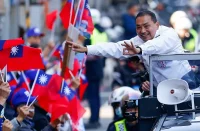Much of the world today is on tenterhooks awaiting the outcome of the US-North Korea Summit on denuclearization of North Korea. Both US President Trump and his North Korean counterpart Kim Jong-un are idiosyncratic, whimsical and conceited and it will be interesting, if not hilarious, to watch (pardon my hypocrisy) how they will tango, without stepping on each other and hurting their big toes, bigger egos and, putting at risk the once-in-a-lifetime chance of peace on the Korean Peninsula.
History is replete with instances of attempts and failures to achieve Nuclear Disarmament. When the US, Russia and other states realized during the Cold War, of the extreme dangers inherent in nuclear weaponry, a series of disarmament and non-proliferation treaties were agreed upon after years of negotiations. Among the more notable are the NPT (Nuclear Non-Proliferation Treaty) of 1968, with its three main pillars: nonproliferation, disarmament, and the right to peacefully use nuclear technology, SALT I (1972), SALT II (1979), START I (1991), START II (1993) and New START Treaty (2012).
In 1961, the UN General Assembly adopted a landmark Resolution 1653 which stated that use of nuclear weaponry “would exceed the scope of war and cause indiscriminate suffering and destruction to mankind and civilization and, as such, is contrary to the rules of international law and to the laws of humanity”. In 1998, the UN Office for Disarmament Affairs (UNODA) was set up with the goal to promote nuclear disarmament and non-proliferation of weapons of mass destruction including chemical and biological weapons, land mines and small arms. Further, a wide array of non-governmental organizations continue to hold rallies, or lead protest movements in favor of a nuclear weapons-free world. To date, with the exception of South Africa, none of the nuclear states have agreed to give up their nuclear arsenals, arguing in favor of a nuclear deterrence to war.

So what should one expect from the upcoming US/North Korea summit? In my judgement, below-listed are the six salient points. That said, whatever deals are struck, they must be clearly demarcated, so as to leave no room for aberration.
First, the North Koreans will have their strategic priorities in negotiations clearly mapped out in advance. One doubts the Trump Administration will be in a similar consensus mode, given the penchant of several hawks not to compromise but to forcefully push for “our way or the highway”. This must not happen.
Second, the US, the world’s greatest democracy, must raise the subject of Human Rights in North Korea and of those languishing in its labor camps. Past US Administrations have brought the subject up to no avail. North Korea will not brook any interference in their internal affairs, but the point must be made strongly.
Third, on the main issue of complete denuclearization by North Korea, the latter will agree tentatively, and in principle, offering a time table, hoping to buy time. In addition, North Korea will ask for the immediate lifting of all economic and other sanctions imposed by various states. The North Koreans are well aware of the propensity of the Trump Administration to walk out of existing international pacts or to insist on re-designing them to suit its own agenda. They are also well aware of the upcoming required certification of the Iran Nuclear Deal and the likelihood of it being scuttled. The North Koreans may also ask why the Nuclear Non-Proliferation (NPT) and other such treaties have not been forced into compliance by nuclear states, both declared and undeclared.
Fourth, the North Koreans may be willing to sign a Peace Treaty with the South Koreans provided the South stops conducting naval exercises with the US and commits to no longer allowing US military bases on its soil.
In the ultimate analysis, North Korea’s goal is to be rid of the sanctions regime imposed on it, seek a place on the international stage as a recognized world power and not a pariah state, while paying lip service to complete denuclearization.
Fifth, Japan clearly has a stake, geographically and strategically, in the Summit discussions and will continue to press for total Denuclearization of the Korean Peninsula.
Sixth, China will stay in the middle course, a sensible broker of sorts, unwilling to risk the inevitable tide of millions of North Korean refugees on its soil, if the Summit fails and war breaks out.
Jim Falk, in his book “Global Fusion, the Battle over Nuclear Power” writes: For the anti-nuclear weapons movement, the atomic bomb “encapsulated the very worst direction in which the society was moving”. It’s a point worthy of reflection by the power brokers of the upcoming Summit!















Comments